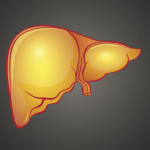Among people with HIV, engaging in aerobic exercise is associated with mitigated depression but not with improvements in a particular marker of inflammation, according to a recent systematic review and meta-analysis, the National AIDS Treatment Advocacy Project (NATAP) reports.
Presenting findings at the 10th International AIDS Society Conference on HIV Science (IAS 2019) in Mexico City, researchers from Obafemi Awolowo University Teaching Hospital in Nigeria, the University of Nigeria and McMaster University in Hamilton, Ontario, analyzed data from six studies that provided findings about the impact of aerobic exercise on depressive symptoms or levels of high-sensitivity C-reactive protein (hsCRP) in the serum—a biomarker of inflammation.
These studies included 261 HIV-positive adult participants between them, 41% of whom were women. Just two of the papers were deemed to be of high quality.
In the two studies providing data on hsCRP, there was no association between aerobic exercise and lower inflammation.
In the meta-analysis of the four studies that provided depression-related data, aerobic exercise was associated with a decline in depression scores. The exercise programs analyzed involved three to five sessions per week lasting 24 to 60 minutes in which participants sustained 55% to 75% of their age-predicted maximal heart rate, 60% to 80% of their maximal oxygen uptake or 50% to 80% of their heart rate reserve.
The study authors said aerobic exercise’s impact on inflammation demands further, high-quality studies, including those that focus not just on CRP, as there are other inflammatory biomarkers that can be assessed.
A 2016 randomized study of a 12-week resistance training program did find that it reduced CRP.
To read the study abstract, click here.
To read the NATAP report, click here.







Comments
Comments